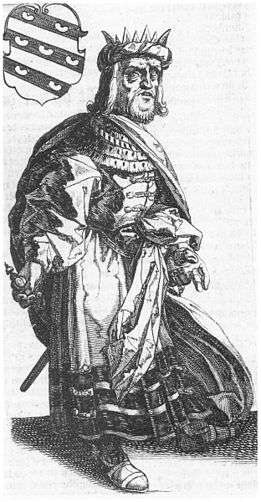719
This article is about the year 719. For the number, see 719 (number).
| Millennium: | 1st millennium |
|---|---|
| Centuries: | 7th century – 8th century – 9th century |
| Decades: | 680s 690s 700s – 710s – 720s 730s 740s |
| Years: | 716 717 718 – 719 – 720 721 722 |
| 719 by topic | |
| Politics | |
| State leaders – Sovereign states | |
| Birth and death categories | |
| Births – Deaths | |
| Establishment and disestablishment categories | |
| Establishments – Disestablishments | |
| Gregorian calendar | 719 DCCXIX |
| Ab urbe condita | 1472 |
| Armenian calendar | 168 ԹՎ ՃԿԸ |
| Assyrian calendar | 5469 |
| Bengali calendar | 126 |
| Berber calendar | 1669 |
| Buddhist calendar | 1263 |
| Burmese calendar | 81 |
| Byzantine calendar | 6227–6228 |
| Chinese calendar | 戊午年 (Earth Horse) 3415 or 3355 — to — 己未年 (Earth Goat) 3416 or 3356 |
| Coptic calendar | 435–436 |
| Discordian calendar | 1885 |
| Ethiopian calendar | 711–712 |
| Hebrew calendar | 4479–4480 |
| Hindu calendars | |
| - Vikram Samvat | 775–776 |
| - Shaka Samvat | 641–642 |
| - Kali Yuga | 3820–3821 |
| Holocene calendar | 10719 |
| Iranian calendar | 97–98 |
| Islamic calendar | 100–101 |
| Japanese calendar | Yōrō 3 (養老3年) |
| Julian calendar | 719 DCCXIX |
| Korean calendar | 3052 |
| Minguo calendar | 1193 before ROC 民前1193年 |
| Seleucid era | 1030/1031 AG |
| Thai solar calendar | 1261–1262 |
Year 719 (DCCXIX) was a common year starting on Sunday (link will display the full calendar) of the Julian calendar. The denomination 719 for this year has been used since the early medieval period, when the Anno Domini calendar era became the prevalent method in Europe for naming years.
Events
By place
Byzantine Empire
- Ex-Emperor Anastasios II starts a revolt against Leo III with considerable support, including auxiliaries provided by Tervel, emperor (khagan) of the Bulgarian Empire. His attack on Constantinople fails, Anastasios is captured and is put to death (by beheading) on orders of Leo.
Europe
- Ummayad conquest of Gaul: First major Muslim attack upon Visigothic Septimania (Southern France). Governor Al-Samh takes or re-takes Narbonne (Arbouna for the Arabs) before raiding Toulouse area. Many town defenders and inhabitants are killed in the aftermath by the Umayyad forces.[1]
- Frisian–Frankish War: Charles Martel defeats Redbad, King of the Frisians. He easily invades Frisia (modern Netherlands) and subjugates the territory. Charles also crosses the Rhine and annexes "farther" Frisia, to the banks of the river Vlie.[2](p795)
- Duke Grimoald becomes sole ruler of Bavaria after the deaths of his brothers Theodbert, Theobald, and Tassilo II. He reunites the duchy after a civil war and makes his capital Salzburg (approximate date).
- May – Chilperic II is raised on the shield after the death of Chlothar IV and by Charles Martel recognized as king (roi fainéant) of the Franks. Charles however gains a monopoly on power and royal offices.
By topic
Religion
- The church of Nubia transfers its allegiance from the Eastern Orthodox Church to the Coptic Church (approximate date).
Births
- Guan Bo, chanchellor of the Tang Dynasty (d. 797)
- Isma'il ibn Jafar, Shī‘ah Imām and scholar (or 722)
- Yang Guifei, concubine of Xuan Zong (d. 756)
Deaths
- Anastasios II, Byzantine emperor
- Chlothar IV, king of Austrasia (approximate date)
- Dae Jo-yeong, king of Balhae (Korea)
- Muhammad ibn Marwan, Arab general (or 720)
- Pega, Anglo-Saxon anchoress (approximate date)
- Radbod, king of the Frisians
- Tassilo II, duke of Bavaria (approximate date)
- Theobald, duke of Bavaria (or 717)
- Theodbert, duke of Bavaria (approximate date)
References
- ↑ David Nicolle (2008). Poitiers AD 732, Charles Martel turns the Islamic tide (p. 17). ISBN 978-184603-230-1
- ↑ Halbertsma, Herrius (1982). "Summary". Frieslands Oudheid (PDF) (Thesis) (in Dutch). Groningen: Rijksuniversiteit Groningen. pp. 791–798. OCLC 746889526.
This article is issued from Wikipedia - version of the Friday, March 13, 2015. The text is available under the Creative Commons Attribution/Share Alike but additional terms may apply for the media files.
